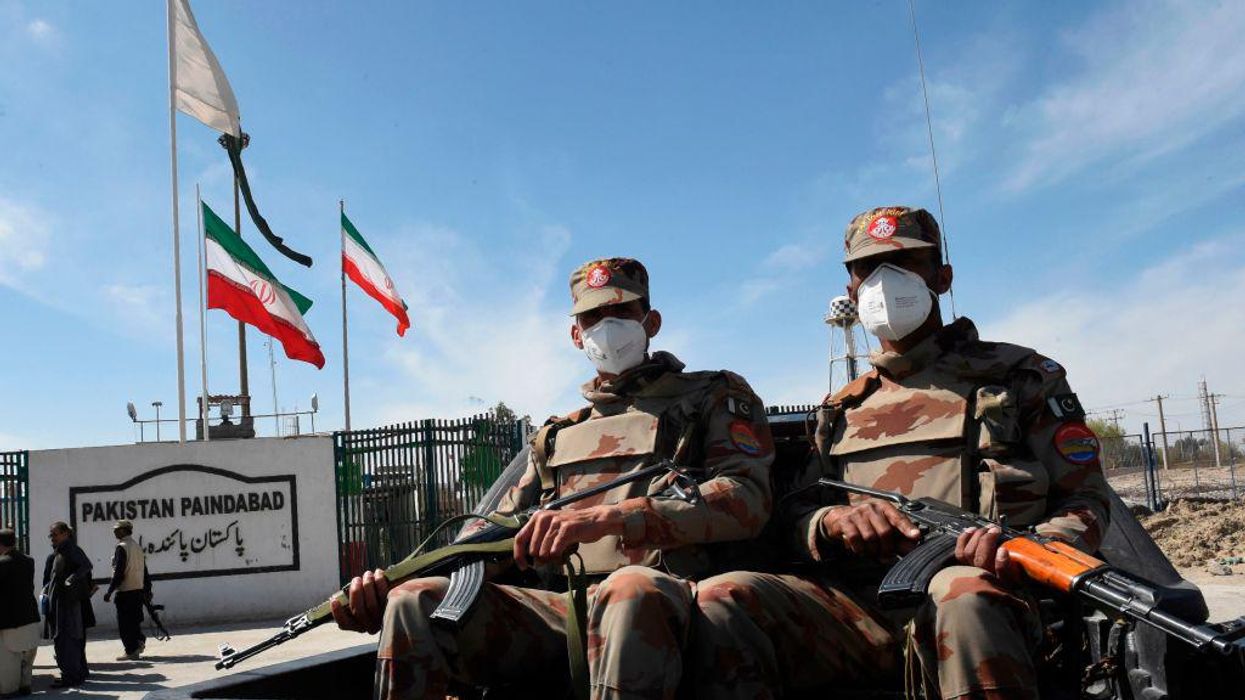
Photo by BANARAS KHAN/AFP via Getty Images

The Iranian government has rejected more than 800,000 doses of COVID-19 vaccines because they were manufactured in the United States, the Associated Press reported.
Poland donated nearly 1 million doses of the British-Swedish AstraZeneca vaccine to Iran, only to have more than half of the donation returned to them.
Mohammad Hashemi, an Iranian Health Ministry official, said, “When the vaccines arrived in Iran, we found out that 820,000 doses of them which were imported from Poland were from the United States.”
Hashemi said, “After coordination with the Polish ambassador to Iran, it was decided that the vaccines would be returned.”
In 2020, Iran’s supreme leader, the Ayatollah Ali Khamenei, said that Iran would deny American or British vaccines from entering the country, calling them “forbidden.”
However, Iran openly imports vaccines manufactured in Western countries other than the United States and the United Kingdom.
Despite the fact that Iran is currently facing its sixth major wave of COVID-19 infection, the country still refuses to accept vaccines from its enemies.
Earlier in the pandemic, leaders in the Iranian parliament made clear that they would refuse all American-made vaccines even as the country repeatedly set new records for daily COVID deaths.
Iran has the highest national death toll from COVID-19 in the Middle East, with more than 135,000 total covid deaths. The Iranian government says that roughly 90% of its population over the age of 18 has been vaccinated with two shots, while only 37% have received a booster.
Largely, Iran has relied on the Chinese state-backed Sinopharm vaccine but provides many others for its citizens to choose from. Iranians can also receive Russia’s Sputnik V vaccine, the Indian Covaxin, and the domestically developed COVIran vaccine.
Despite the ayatollah’s stance against using British vaccines, the British-Swedish AstraZeneca vaccine is also prevalent in Iran.
In recent weeks, the United States and Iran have had a souring of relations.
In the autumn of 2021, Iranian-sponsored Houthi rebels breached the American embassy in Yemen. The Iran-backed terrorists took several hostages.
In early February, the U.S. State Department announced that Iran was “weeks” away from being able to power an atomic bomb. After 10 months of renegotiating the 2015 Iranian nuclear accord agreement, the State Department under President Joe Biden has made little progress in deterring the country from developing a nuclear arsenal.
Shortly after making this announcement, the Iranian government debuted a new solid-fuel missile — called the Khaibar-buster — that is able to strike American bases in the Middle East and hit targets deep within Israel.
It is believed that the Khaibar-buster is able to circumvent Israel’s sophisticated missile defense systems.